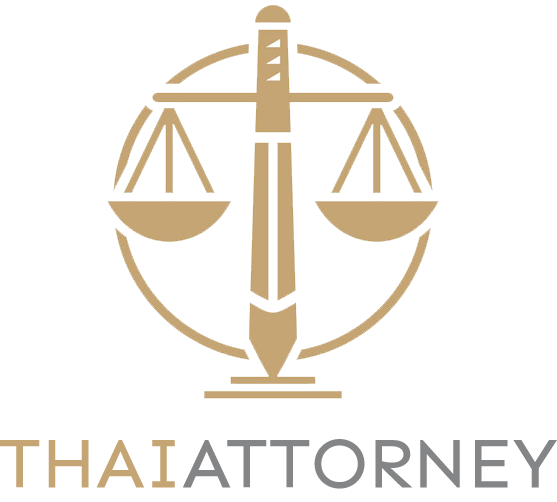Arbitration in Thailand is an increasingly popular method for resolving commercial disputes, especially in international and cross-border transactions. Governed by the Thai Arbitration Act of 2002, arbitration offers an efficient, flexible, and often less adversarial alternative to litigation in Thai courts. This article will explore the legal framework for arbitration in Thailand, the role of arbitral institutions, the arbitration process, and the enforceability of arbitral awards.
1. Legal Framework for Arbitration in Thailand
Thailand’s arbitration process is primarily regulated by the Arbitration Act B.E. 2545 (2002), which is modeled after the UNCITRAL Model Law on international commercial arbitration. This law governs both domestic and international arbitration proceedings and provides a consistent legal framework for dispute resolution. Key provisions include:
a) Agreement to Arbitrate
The arbitration process begins with an arbitration agreement, where parties voluntarily agree to resolve disputes through arbitration rather than through courts. This agreement can be a standalone document or a clause within a larger contract. The arbitration agreement must be in writing and clearly state the intention to arbitrate.
b) Arbitrators
Arbitrators play a critical role in arbitration proceedings. Under the Act, parties are free to select arbitrators based on their qualifications and expertise. The Act also provides a mechanism for appointing arbitrators if the parties cannot agree. Arbitrators are expected to act impartially and independently.
c) Procedural Flexibility
The Arbitration Act allows parties to tailor the procedural rules governing the arbitration process. This flexibility extends to matters such as the language of the proceedings, choice of legal representation, location of hearings, and evidentiary procedures.
d) Enforcement of Arbitral Awards
Arbitral awards in Thailand are enforceable both domestically and internationally under the New York Convention of 1958, which Thailand is a signatory to. This ensures that arbitral awards made in Thailand can be recognized and enforced in over 160 countries worldwide, and vice versa.
2. Arbitral Institutions in Thailand
Several institutions in Thailand administer arbitration proceedings, offering services that range from providing facilities for hearings to appointing arbitrators. The two most prominent institutions are:
a) Thailand Arbitration Center (THAC)
The Thailand Arbitration Center (THAC) was established in 2015 and is a key player in the country’s arbitration landscape. THAC provides arbitration and mediation services for domestic and international disputes. It offers modern facilities, highly qualified arbitrators, and flexible arbitration rules tailored to the needs of the parties involved.
b) Thai Arbitration Institute (TAI)
The Thai Arbitration Institute (TAI), under the jurisdiction of the Ministry of Justice, has been administering arbitration cases since 1990. It handles commercial, investment, and international disputes and provides arbitrators with expertise in various industries.
Both institutions are crucial in ensuring that Thailand remains a preferred hub for resolving disputes, especially in the ASEAN region, thanks to their impartiality, procedural efficiency, and access to expert arbitrators.
3. The Arbitration Process in Thailand
The typical arbitration process in Thailand involves the following stages:
a) Initiating Arbitration
The arbitration process begins when one party files a Notice of Arbitration with an arbitral institution or directly with the opposing party. The notice outlines the nature of the dispute, the relief sought, and the terms of the arbitration agreement.
b) Selection of Arbitrators
Parties can appoint arbitrators themselves or request the arbitral institution to appoint them. For international disputes, the selection often involves arbitrators with expertise in cross-border legal issues and a thorough understanding of international law.
c) Preliminary Hearings
Once arbitrators are appointed, preliminary hearings are held to define the procedural rules and scope of the arbitration. This stage involves setting timelines, agreeing on document disclosure protocols, and determining the schedule for hearings.
d) Presentation of Evidence
Parties present their cases through witness testimonies, expert reports, and documentary evidence. Arbitration allows for more streamlined and flexible evidentiary processes compared to traditional litigation, often reducing the time required to resolve the dispute.
e) Award and Enforcement
After considering the evidence, the arbitrators issue a final decision, known as the arbitral award. The award is legally binding on both parties. If one party fails to comply, the other can seek enforcement through the Thai courts or, in international cases, through the courts of other signatory countries under the New York Convention.
4. Advantages of Arbitration in Thailand
Arbitration has distinct advantages over litigation, making it an attractive option for businesses, especially those engaged in international commerce:
a) Confidentiality
Unlike court proceedings, arbitration hearings are private, and the details of the case and the award are not disclosed to the public. This privacy is particularly beneficial for businesses concerned about protecting sensitive information, such as trade secrets or proprietary technology.
b) Speed and Efficiency
Arbitration proceedings are often faster than court litigation, particularly when dealing with complex commercial or technical matters that would otherwise take years to resolve through the Thai judicial system.
c) Expert Arbitrators
Parties can select arbitrators with specific expertise in their industry or legal issue, ensuring that the dispute is evaluated by professionals who fully understand the intricacies of the subject matter.
d) International Enforceability
Arbitral awards are recognized and enforceable in over 160 countries under the New York Convention, making arbitration particularly useful for cross-border disputes where enforcement across multiple jurisdictions is crucial.
5. Challenges and Considerations in Thai Arbitration
While arbitration offers numerous benefits, it is not without its challenges:
a) Costs
Although arbitration can be more efficient than litigation, it can also be costly. Fees for arbitrators, administrative costs, and the hiring of expert witnesses can add up, making it expensive for smaller businesses.
b) Enforceability Issues
While arbitral awards are generally enforceable under the New York Convention, there can be instances where enforcement is denied, particularly if the award contradicts Thai public policy or if the process did not comply with due process standards.
c) Limited Grounds for Appeal
Arbitration awards are binding and final, meaning that there are limited grounds for appealing or challenging the award in court. This finality is both an advantage and a disadvantage, depending on the perspective of the parties involved.
Conclusion
Arbitration in Thailand offers a highly flexible and efficient means of resolving disputes, particularly for businesses engaged in commercial and international transactions. With its well-established legal framework under the Arbitration Act, strong institutional support from the THAC and TAI, and enforceability through the New York Convention, Thailand is an attractive venue for both domestic and international arbitration. However, like any dispute resolution method, arbitration in Thailand requires careful planning, the selection of experienced arbitrators, and a thorough understanding of the legal environment to ensure a successful outcome.

